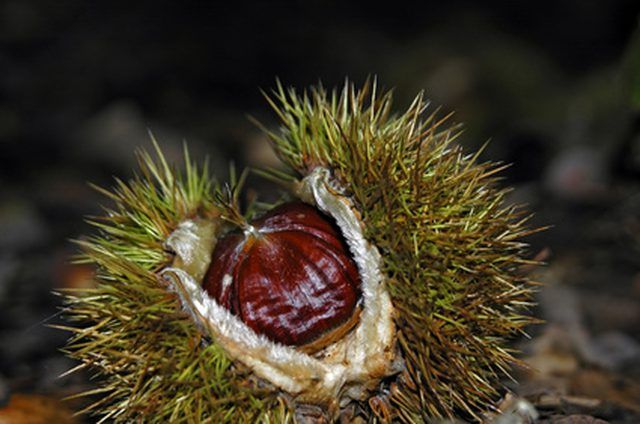Bulbs
Flower Basics
Flower Beds & Specialty Gardens
Flower Garden
Garden Furniture
Garden Gnomes
Garden Seeds
Garden Sheds
Garden Statues
Garden Tools & Supplies
Gardening Basics
Green & Organic
Groundcovers & Vines
Growing Annuals
Growing Basil
Growing Beans
Growing Berries
Growing Blueberries
Growing Cactus
Growing Corn
Growing Cotton
Growing Edibles
Growing Flowers
Growing Garlic
Growing Grapes
Growing Grass
Growing Herbs
Growing Jasmine
Growing Mint
Growing Mushrooms
Orchids
Growing Peanuts
Growing Perennials
Growing Plants
Growing Rosemary
Growing Roses
Growing Strawberries
Growing Sunflowers
Growing Thyme
Growing Tomatoes
Growing Tulips
Growing Vegetables
Herb Basics
Herb Garden
Indoor Growing
Landscaping Basics
Landscaping Patios
Landscaping Plants
Landscaping Shrubs
Landscaping Trees
Landscaping Walks & Pathways
Lawn Basics
Lawn Maintenance
Lawn Mowers
Lawn Ornaments
Lawn Planting
Lawn Tools
Outdoor Growing
Overall Landscape Planning
Pests, Weeds & Problems
Plant Basics
Rock Garden
Rose Garden
Shrubs
Soil
Specialty Gardens
Trees
Vegetable Garden
Yard Maintenance
Tennessee Fruit & Nut Trees
Tennessee Fruit & Nut Trees. Tennessee soils and climates are optimal for a variety of trees to thrive. Not only do trees give shade and shelter to wildlife, they also provide food for both humans and animals. Fruit and nut trees make useful additions to landscaping. Pear, quince and mulberry are some of the fruit trees grown in Tennessee. Nut...
Tennessee soils and climates are optimal for a variety of trees to thrive. Not only do trees give shade and shelter to wildlife, they also provide food for both humans and animals. Fruit and nut trees make useful additions to landscaping. Pear, quince and mulberry are some of the fruit trees grown in Tennessee. Nut trees that grow and produce well in Tennessee include butternut, heartnut and hican.
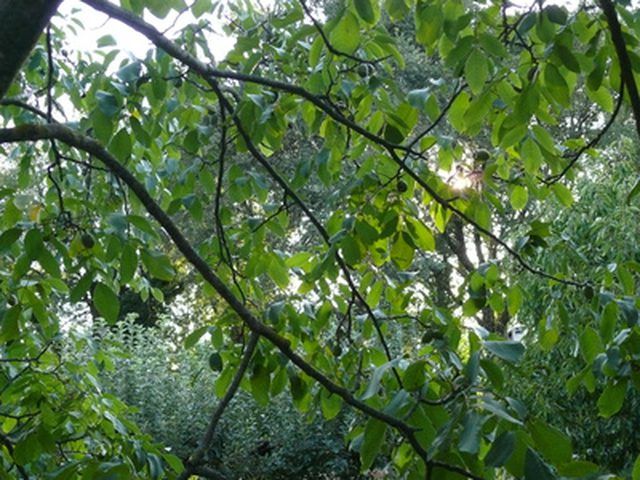
The two main types of persimmon trees are American and Oriental. In general, persimmon trees are male or female, but occasionally you will find a tree with both male and female flowers. To produce fruit, you must cross-pollinate an American persimmon with another American persimmon. Oriental persimmons donít require cross-pollination, but the trunks suffer damage from winter weather.
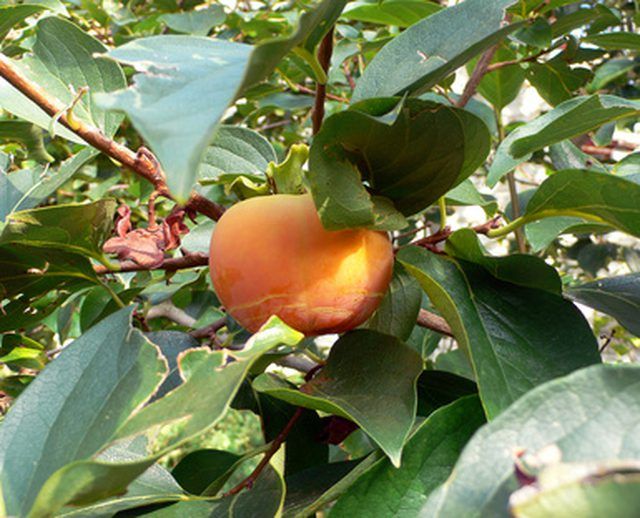
Many varieties of apple grow well in Tennessee. Fuji is a cultivar that produces sweet, crisp apples with a yellowish-green skin. Honey Crisp is a red-skinned apple with crisp, juicy flesh. Honey Crisp also stores well. A highly productive cultivar that produces large reddish-yellow fruits is Mollieís Delicious. This cultivar generally produces two to three harvests per year. Liberty is a disease-resistant cultivar with red-striped fruits good for eating fresh, making into applesauce and juicing.
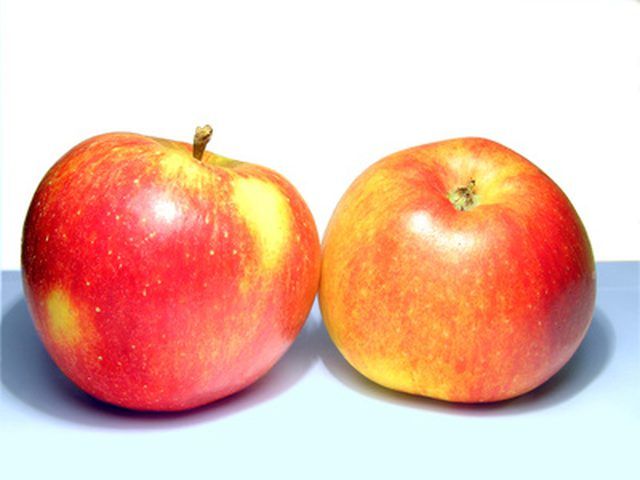
Some types of tart cherry trees produce well in Tennessee, but sweet cherry trees sometimes sustain canker diseases and injury from cold temperatures. Tart cherries also have the advantage of not requiring cross-pollination. The Early Richmond cultivar produces tart, acidic fruits good for cooking. The tree is also very hardy. Another tart cherry cultivar is Montmorency, which produces large, tart fruits for cooking or freezing.
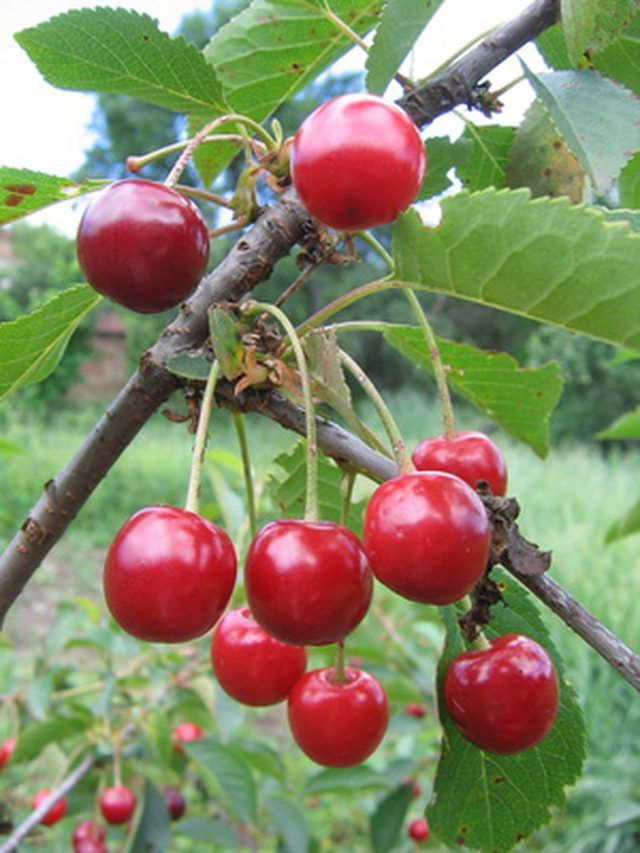
Pecan trees in Tennessee are generally either mid-season or short-season. Mid-season pecans mature in approximately 180 to 190 days. Short-season tend to mature in 160 to 175 days. Maramec is a mid-season producer resistant to scab and winter injury. The Osage cultivar resists scab and produces high-quality nuts with approximately 82 nuts per pound. When properly cared for, pecan trees grow very large and live a long time.
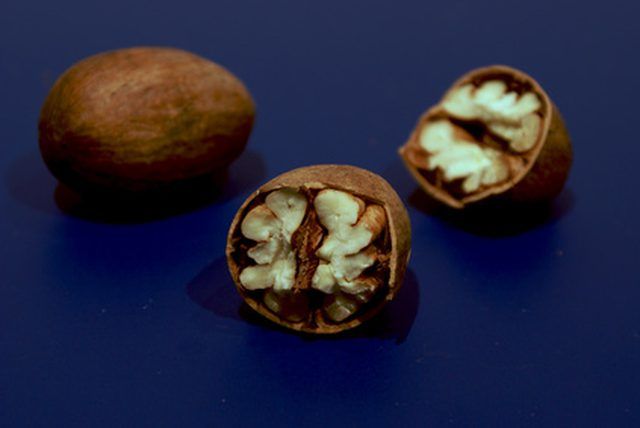
Both English walnuts and black walnuts grow in Tennessee. Black walnuts need deep, fertile, well-drained soil. For good cross-pollination of English walnuts, also called Carpathian Type, plant two or more varieties. Some varieties of English walnuts are Kentucky Giant, Broadview and Colby. Black walnut varieties include Ohio, Stabler and Thomas.
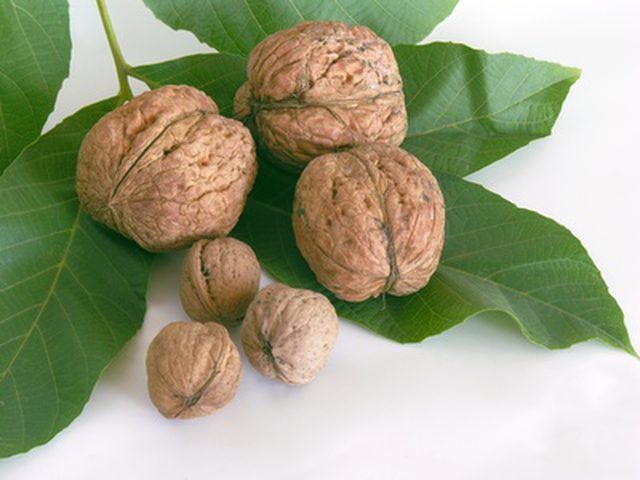
Chinese chestnut trees are wind-pollinated and require a second variety in order to produce nuts. Until the early 1900s, American chestnut trees were prevalent from Maine to Georgia. By the 1950s, chestnut blight had nearly wiped out the American chestnut. Chinese chestnut trees show significant resistance to chestnut blight, although not completely immune to the disease. Efforts are under way by several organizations to produce a hybrid of the American chestnut resistant to chestnut blight and reintroduce it to the Eastern deciduous forests.
